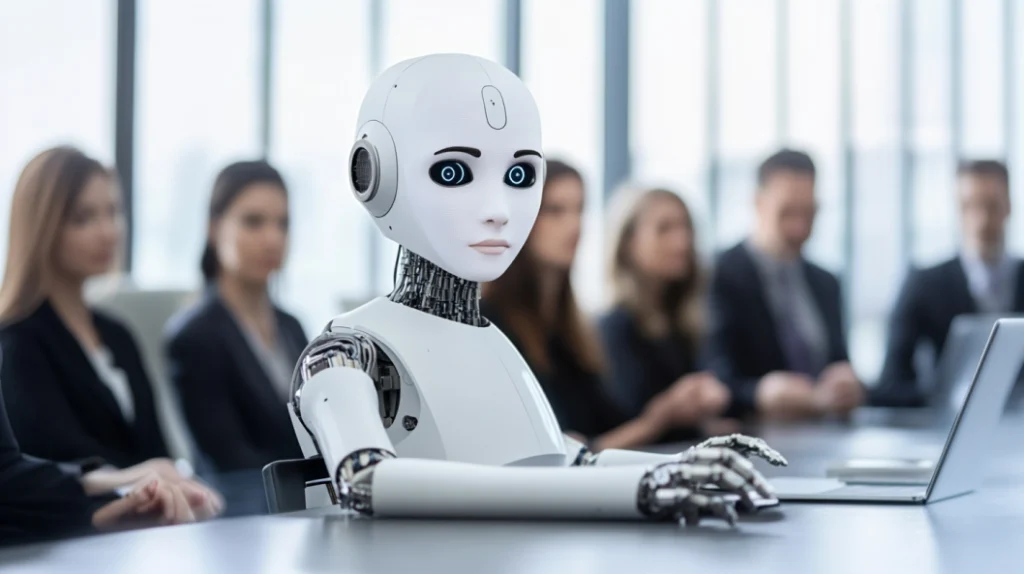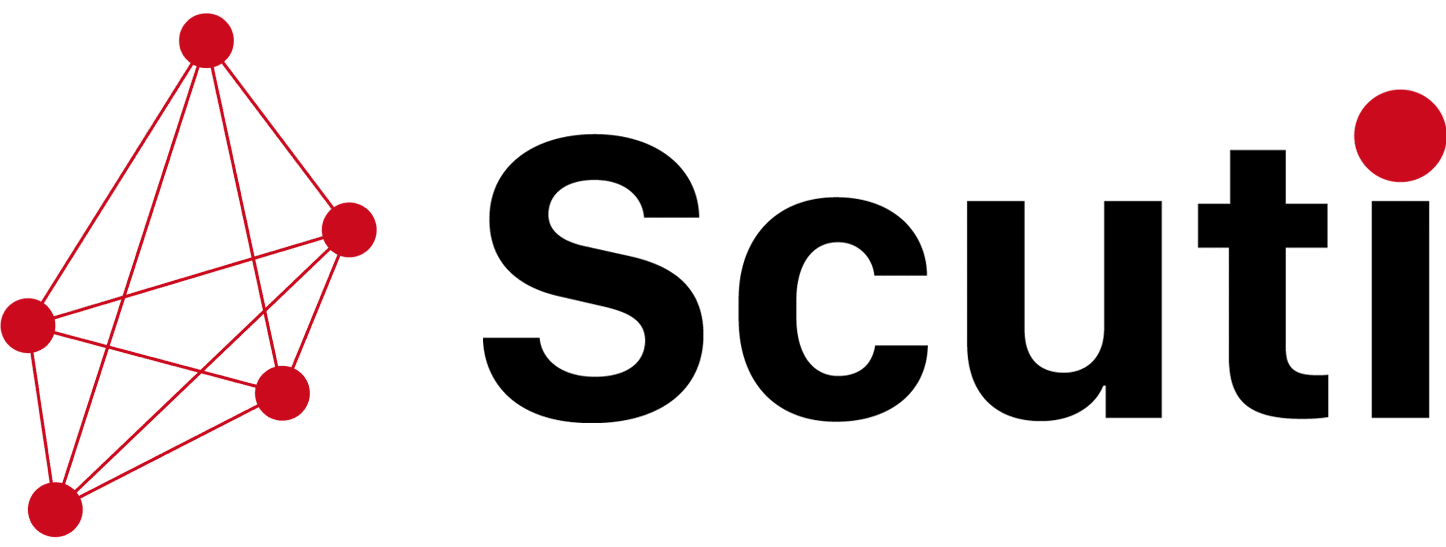
Hello, I am Kakeya, the representative of Scuti.
Our company specializes in offshore development and lab-based development in Vietnam, leveraging generative AI as our core strength. We also provide consulting services for generative AI. Recently, we have been fortunate to receive many requests for system development integrated with generative AI.
Are you facing challenges in streamlining your HR operations? With advancements in generative AI, HR departments can now experience significant improvements in various tasks, including recruitment, training, and performance management.
For example, leveraging talent intelligence enables the efficient analysis of candidates’ skills, allowing them to be placed in the most suitable positions.
Additionally, we can enhance employee experience and automate training processes, creating an environment where employees can perform at their best.
The Present and Potential of AI Utilization in the HR Industry
How Does AI Transform HR Operations?
AI brings significant changes to HR operations.
Firstly, it automates previously manual tasks such as recruitment processes, schedule management, and candidate screening, leading to improved efficiency. This enables HR professionals to focus more on strategic tasks.
Moreover, AI analyzes large datasets to support the formulation of optimal strategies for recruitment and talent placement. Predictive analytics based on historical data allow companies to identify the right talent and make informed decisions effectively.
Thus, AI not only enhances efficiency but also empowers companies to evolve their HR strategies through data-driven decision-making.
Benefits of AI Implementation
Operational Efficiency: Routine tasks such as screening applications, scheduling interviews, and managing HR information can be automated.
Improved Recruitment Success Rate: AI-powered candidate analysis efficiently identifies candidates with high potential to match the company’s desired profile.
Enhanced Employee Engagement: Providing personalized training programs and ensuring timely communication enhances employee engagement.
Utilization of HR Data: Analyzing accumulated HR data allows for strategic decisions, such as predicting employee turnover and optimizing talent placement.
Streamlining HR Operations with Generative AI: Practical Examples and Benefits

Generative AI in Recruitment
By leveraging generative AI, recruitment activities such as creating job postings, screening applications, and scheduling interviews can be automated. This allows recruiters to focus on more strategic tasks, leading to greater efficiency.
Automated Job Post Creation:
With generative AI, job descriptions including roles, required skills, and experience can be generated automatically, resulting in compelling job postings.
Automated Application Screening:
AI can efficiently screen large volumes of applications, ensuring that candidates matching the company’s criteria are shortlisted. This reduces the workload of recruiters significantly.
Automated Interview Scheduling:
AI manages the schedules of applicants and interviewers, setting up interviews efficiently.
Generative AI for Employee Development
Generative AI enables the creation of personalized training programs tailored to each employee’s skills, experience, and learning progress.
Additionally, AI chatbots can handle inquiries related to training content, providing prompt responses to employees’ questions.
Automated Training Program Creation
Generative AI allows for the creation of personalized training programs tailored to each employee’s skills, experience, and learning progress.
Automated Inquiry Handling for Training
AI chatbots can automatically respond to inquiries about training content, ensuring prompt responses to employee questions.
Generative AI for Performance Management
Traditionally, employee evaluations often lacked clear standards due to subjectivity among evaluators. However, with generative AI, evaluations can be conducted based on objective performance metrics.
Automated Evaluations Based on Metrics:
Generative AI enables evaluations to be based on objective performance indicators.
Automated Feedback Generation:
AI automatically generates feedback for employees based on evaluation results.
Case Studies of Generative AI Implementation at Our Company
Structuring Resumes and Job Histories:
By uploading resumes and job histories, the data—such as names, contact details, and career information—are converted into structured formats, significantly reducing the time spent on data entry. Additionally, the system can automatically generate summaries of candidates using generative AI, allowing recruiters to quickly grasp the profiles of applicants.
Matching Evaluation Between Candidates and Companies:
Generative AI analyzes the information of both candidates and companies, evaluates the degree of compatibility, and creates lists of companies that match each candidate, as well as lists of candidates that match each company.
Key Considerations for Generative AI Implementation

Data Accuracy Management
The accuracy of generative AI heavily depends on the quality of the training data. Therefore, providing precise and unbiased data to the AI is crucial.
Using low-quality or biased data may lead to inaccurate or skewed results.
Additionally, AI trained on incorrect data carries the risk of spreading misinformation. For ethical reasons, ensuring data accuracy is essential. To maintain the performance and reliability of AI, a rigorous process must be established for collecting, selecting, and managing data accuracy, creating an environment where AI can learn from accurate information.
Ethical Considerations
The use of generative AI requires careful ethical consideration.
First, it is essential to prevent generative AI from producing discriminatory content or biased outputs. If the training data contains bias, the resulting outputs may also reflect unfairness.
Additionally, the handling of personal and confidential information demands strict attention. When AI processes personal data, it is crucial to establish robust management frameworks to ensure that the data is not misused. Furthermore, incorporating mechanisms for reviewing and filtering generated content is necessary to prevent the spread of misinformation, which is another ethical challenge that must be addressed.
Security Measures
When using generative AI, implementing effective security measures is essential.
In particular, handling highly sensitive HR data or personal information requires adequate precautions to mitigate the risks of data leaks or unauthorized access. Encrypting data and applying access restrictions are necessary steps to ensure information security.
Additionally, it is important to regularly check the AI system for vulnerabilities and keep security updates current. Ensuring robust security measures enables the reliable operation of AI systems.
Conclusion: Evolving HR Strategies with AI

AI offers new possibilities in various aspects of HR operations, revolutionizing corporate HR strategies.
Automation of recruitment processes, optimal talent placement through employee data analysis, and performance evaluation are all significantly enhanced by AI implementation.
This enables companies to pursue more strategic talent management and make quick, accurate decisions. Moreover, by utilizing AI’s analytical capabilities, businesses can support optimal placements and career development, which contributes to improving employee motivation and retention rates.
By effectively leveraging AI, companies can enhance their competitiveness and achieve sustainable growth. Evolving HR strategies with AI will be a key component in the future of corporate management.

